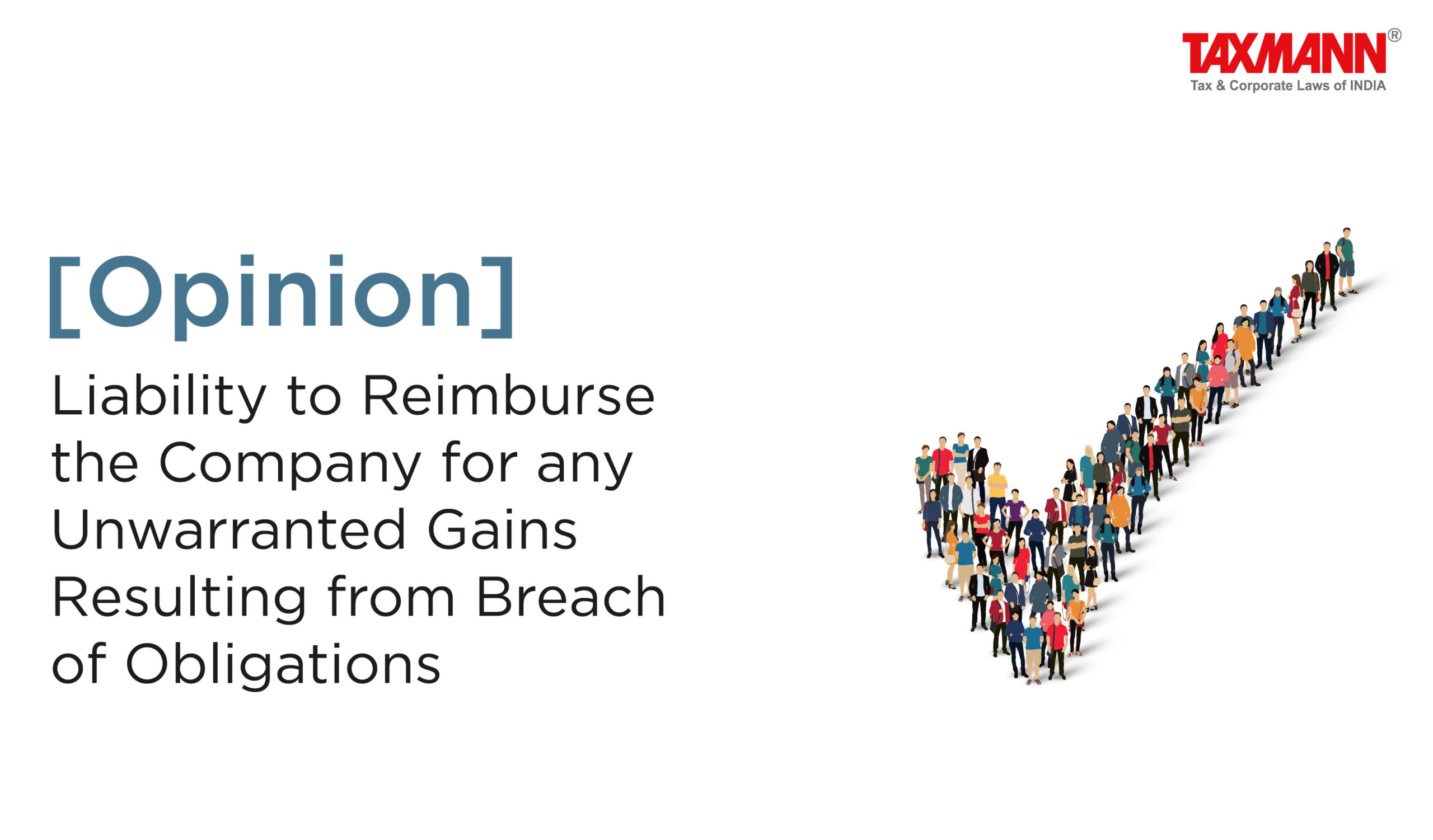[Opinion] Liability to Reimburse the Company for any Unwarranted Gains Resulting from Breach of Obligations
- Blog|News|Company Law|
- 2 Min Read
- By Taxmann
- |
- Last Updated on 5 July, 2023

Tejas Sateesha Hinder & Vaishnavi Salimath – [2023] 152 taxmann.com 74 (Article)
Background
This specific case is one of the first to examine the duties of directors as defined under Section 166 of the Companies Act, 2013 and the potential for related litigation in India. In the case of Rajeev Saumitra v. Neetu Singh [2016] 66 taxmann.com 18 the Delhi High Court reached the conclusion that, when considering a related litigation, a director might be held accountable for paying the business back for any unjustified benefits deriving from the breach of responsibilities outlined in Section 166 of the Companies Act, 2013.
The plaintiff and the defendant are shareholders of Paramount Coaching Center Private Limited (hereinafter “Paramount”), each holding half of the offer capital of Paramount. They are additionally directors of Paramount.
The defendant has fused two different companies that do organizations rivaling Paramount, comparable to which she requested the workers and existing customer base of Paramount. To advance the activities of the companies fused by her, the defendant additionally utilized the altruism and protected innovation of Paramount.
As the defendant was a half shareholder (50% shareholder) and director of Paramount, she had the capacity to hinder any goals of Paramount trying to continue against her. Considering this, the plaintiff contemplated that he had no other option except to seek a subordinate suit against the defendant for the violation of Section 166 of the Companies Act, 2013.
What did the Court say?
The court, based on the facts of the case, held that the defendant, being a larger part shareholder of Paramount, had not acted in compliance with common decency and her actions were infringing upon her trustee obligations as a director. Being liable for the break of Section 166 of the Companies Act, 2013, she is at risk to reimburse the company, for the unjustifiable increase previously made (through the recently joined contending substances).
The court additionally held that a penetrate of directors’ obligations would give the plaintiff shareholder the option to seek subsidiary action against the defendant for the benefit of Paramount.
Compliant with the defendant’s status as a dominant part shareholder of Paramount, the court noticed,
“The facts confirm that an offer is a property, which its proprietor may treat in any capacity he wants. These alternatives, anyway are not limitless. A controlling shareholder who wishes to sell his offers owes an obligation of reliability to the company regarding the deal and should act in compliance with common decency and genuineness toward it, and he will be in penetrating of his obligation on the off chance that he offers his offers to a purchaser who apparently will strip the company of its resources and lead to its bankruptcy.”
Click Here To Read The Full Article
Disclaimer: The content/information published on the website is only for general information of the user and shall not be construed as legal advice. While the Taxmann has exercised reasonable efforts to ensure the veracity of information/content published, Taxmann shall be under no liability in any manner whatsoever for incorrect information, if any.

Taxmann Publications has a dedicated in-house Research & Editorial Team. This team consists of a team of Chartered Accountants, Company Secretaries, and Lawyers. This team works under the guidance and supervision of editor-in-chief Mr Rakesh Bhargava.
The Research and Editorial Team is responsible for developing reliable and accurate content for the readers. The team follows the six-sigma approach to achieve the benchmark of zero error in its publications and research platforms. The team ensures that the following publication guidelines are thoroughly followed while developing the content:
- The statutory material is obtained only from the authorized and reliable sources
- All the latest developments in the judicial and legislative fields are covered
- Prepare the analytical write-ups on current, controversial, and important issues to help the readers to understand the concept and its implications
- Every content published by Taxmann is complete, accurate and lucid
- All evidence-based statements are supported with proper reference to Section, Circular No., Notification No. or citations
- The golden rules of grammar, style and consistency are thoroughly followed
- Font and size that’s easy to read and remain consistent across all imprint and digital publications are applied



 CA | CS | CMA
CA | CS | CMA
